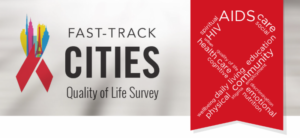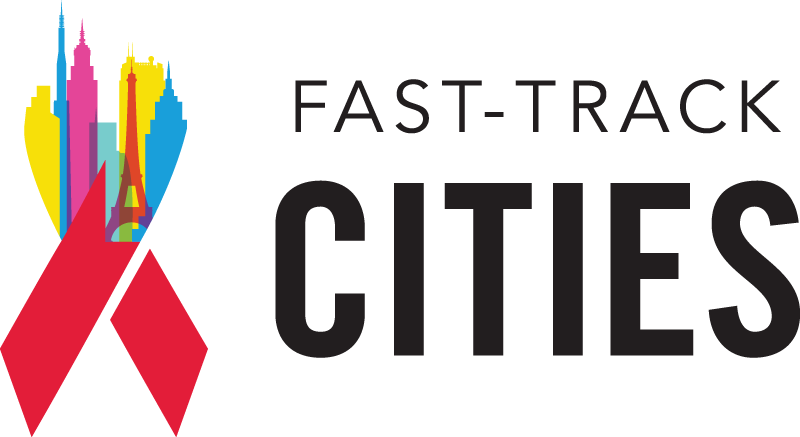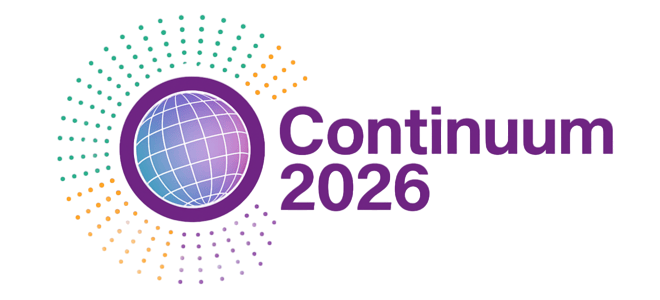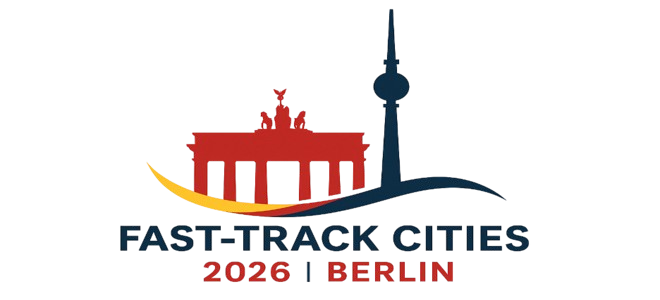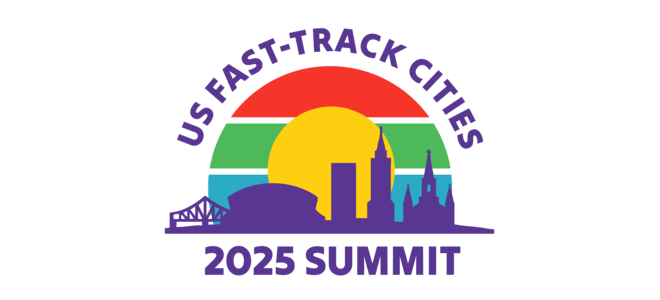Survey Reveals HIV Stigma in Scotland Remains Widespread, with a Majority of Respondents (69%) Feeling Uncomfortable Dating Someone Living with HIV
October 29, 2018 – Results released today from a Europe-wide survey including over 500 people in Scotland demonstrate that, despite significant progress over almost four decades, HIV-related stigma persists as a major challenge for people living with HIV (PLHIV).
Negative societal attitudes towards PLHIV pose a barrier to achieving the Joint United Nations Programme on HIV/AIDS (UNAIDS) 90-90-90 treatment targets by 2020, as stigma discourages testing and can impede PLHIV’s access to and engagement and retention in HIV care.[1] Early diagnosis and successful treatment of HIV can reduce AIDS-related deaths, lead to a near normal lifespan, and prevent HIV transmission.[2],[3]
“Across Scotland, we have seen a great deal of positive changes in addressing HIV management and care over the years, particularly with respect to the UNAIDS 90-90-90 targets for testing, treatment and viral suppression,” said George Valiotis, CEO, HIV Scotland. “However, as these results show, there is still much work to be done amongst the general public to further tackle the issue of HIV-related stigma and misconceptions about HIV and PLHIV, which can be a key barrier to achieving the target of 90% of PLHIV knowing their status. We need to evaluate and increase our efforts and ensure that we adopt the right approach to address these issues and achieve 90-90-90 by 2020.”
Results for Scotland from the Is HIV Sorted? survey, jointly conducted by the International Association of Providers of AIDS Care (IAPAC), the core technical partner of the Fast-Track Cities initiative, and Gilead Sciences, were presented today at HIV Scotland’s ‘Fast Tracking Scotland to End the HIV Epidemic’ event at the Glasgow Science Centre.[4]
- Across Scotland, a significant proportion of respondents (69%) would not feel comfortable dating someone who is living with HIV (68% in Glasgow)
- Just over one-fifth (22%) of respondents would not feel comfortable working with a person living with HIV; however, significantly more respondents (42%) believe that PLHIV should not be allowed to work as healthcare professionals
- Only 43% of respondents across Scotland agreed or strongly agreed that HIV-related stigma is ‘a thing of the past’ in the United Kingdom
The survey results also demonstrated a significant lack of awareness about the realities of HIV treatment and secondary transmission. Successful HIV treatment that yields an undetectable level of HIV in the blood (viral suppression) over a six-month period means that the risk of transmitting the virus from HIV-positive to -negative sexual partners is negligible to non-existent (the premise of the Undetectable=Untransmittable [U=U] message). However:4
- Only around one in 10 respondents (11%) understood the meaning of ‘undetectable,’ with approximately one third (33%) believing that being undetectable means that you can still transmit HIV to someone else
- 44% of respondents believed that it would still be possible to transmit HIV to others, even if HIV treatment was having the best effect possible (viral suppression)
- Less than a third (28%) of respondents were aware that it is possible for women living with HIV who are undetectable to conceive HIV-negative children
HIV testing rates among Scottish respondents were also worryingly low. One fifth of respondents have had an HIV test (19%) in their lifetime – however half of these tests (51%) were completed more than 5 years ago. In addition, the survey found worrying levels of complacency across Scotland with respect to HIV prevention. Almost a quarter of respondents said they had a new sexual partner in the last year but, of these respondents, only 37% always used a condom, and a quarter rarely or never used a condom with a new sexual partner. These results contrast with a majority view among respondents in Scotland (78%) that condoms can protect people from HIV infection, though very few respondents (5%) are aware that taking certain HIV treatments before sex (5%) can reduce HIV acquisition.4
“HIV Scotland’s commitment to fast-track the country’s AIDS response is aligned with the Fast-Track Cities initiative’s objective of attaining the 90-90-90 and zero stigma targets to achieve impact on national HIV epidemics. The Is HIV Sorted? survey results for Scotland demonstrate a need for greater collaboration and coordination to increase HIV literacy among the general public, address complacency regarding HIV testing and prevention, and correct misperceptions that exacerbate stigma against PLHIV,” said Dr. José M. Zuniga, President/CEO, International Association of Providers of AIDS Care (IAPAC). “We firmly believe that for Glasgow and other Scottish cities, an initiative such as Fast-Track Cities can provide a platform to support this holistic approach, with the opportunity to leverage wider global partnerships and share positive learnings and best practices on the world stage.”
###
– Notes to editors –
About Is HIV Sorted?
The Is HIV Sorted? Survey was commissioned by the International Association of Providers of AIDS Care (IAPAC), the core technical partner of the Fast-Track Cities initiative, and Gilead Sciences. The survey respondents included 18,169 HIV-negative[*] adults living in nine countries in Western Europe, including seven with Fast-Track Cities (France, Germany, Italy, Spain, United Kingdom, Ireland, Austria, The Netherlands and Switzerland) and 6,043 HIV-negative* adults living in three countries in Eastern Europe, two with Fast-Track Cities (Romania, Ukraine and the Russian Federation). The survey aimed to provide insights into the general publics’ awareness, perceptions, knowledge, and attitudes towards HIV. The survey was fielded in June 2018 by the independent market research company Opinium. Additional survey data will be made available towards the end of 2018 and in 2019.
About Fast-Track Cities
Cities bear a large share of the global HIV burden. In countries with large HIV epidemics, the numbers of people living with HIV (PLHIV) in urban areas are so high that effective city-level action is likely to influence national outcomes. Even where an HIV epidemic is smaller, cities are home to large numbers of people belonging to key populations at higher risk of HIV infection but which often receive limited attention in HIV programs. The Fast-Track Cities is a global partnership between more than 250 high HIV burden cities, the International Association of Providers of AIDS Care (IAPAC), the Joint United Nations Programme on HIV/AIDS (UNAIDS), and the United Nations Human Settlements Programme (UN-Habitat), and the city of Paris. The initiative was launched on World AIDS Day 2014 in Paris. For more information please visit: http://www.fast-trackcities.org.
About the International Association of Providers of AIDS Care (IAPAC)
IAPAC was founded more than three decades ago with a mission to improve access to, and the quality of, prevention, care, treatment, and support services deliver to people living with and affected by HIV and comorbid diseases, including tuberculosis and viral hepatitis (HBV and HCV). With more than 30,000 members globally, IAPAC is the largest association of clinicians and allied health professionals who are working with many partners to end AIDS as a public health threat by 2030.
About HIV Scotland
HIV Scotland is the national HIV policy organisation for Scotland. We exist on behalf of all those living with and at risk of HIV to ensure that Scotland has responsive policies, quality services and a supportive environment that enable people living with or at risk of HIV in Scotland to live health and fulfilling lives. HIV Scotland is a multi-award-winning charity, recognised for our skill in bringing multiple partners together to achieve innovative and ambitious outcomes. HIV Scotland is the national collaborating partner with IAPAC to deliver the Fast Track Cities initiative in Scotland.
About the UNAIDS 90-90-90 Targets
The Joint United Nations Programme on HIV/AIDS (UNAIDS) asserts that attaining the 90-90-90 targets is a means of placing national and municipal jurisdictions on a trajectory towards ending AIDS as a public health threat by 2030. The targets translate into:
- 90% of people living with HIV (PLHIV) knowing their HIV status
- 90% of PLHIV who know their HIV-positive status on antiretroviral therapy (ART)
- 90% of PLHIV on ART achieving viral suppression
About Gilead Sciences
Gilead Sciences, Inc. is a research-based biopharmaceutical company that discovers, develops and commercializes innovative medicines in areas of unmet medical need. The company strives to transform and simplify care for people with life-threatening illnesses around the world. Gilead has operations in more than 35 countries worldwide, with headquarters in Foster City, California.
For nearly 30 years, Gilead has been a leading innovator in the field of HIV, driving advances in treatment, prevention and cure research. Today, it’s estimated that more than 11.5 million people living with HIV globally receive antiretroviral therapy provided by Gilead or one of the company’s generic manufacturing partners.
For more information on Gilead Sciences, please visit the company’s website at www.gilead.com, follow Gilead on Twitter (@GileadSciences) or call Gilead Public Affairs at 1-800-GILEAD-5 or
1-650-574-3000.
References
[*] Self-described
[1] Centers for Disease Control and Prevention (CDC). HIV Stigma Fact Sheet. Available at https://www.cdc.gov/actagainstaids/pdf/campaigns/lsht/cdc-hiv-TogetherStigmaFactSheet.pdf [last accessed July 2018]
[2] May, MT. Better to know: the importance of early HIV diagnosis. The Lancet 2016.
[3] World Health Organization. HIV/AIDS. Available at: http://www.euro.who.int/en/health-topics/communicable-diseases/hivaids/hivaids [last accessed October 2018]
[4] Opinium. Is HIV sorted survey (sample: 18,169). June – July 2018. Survey commissioned by the International Association of Providers of AIDS Care (IAPAC) and Gilead Sciences
 Representatives from six cities around the world will convene January 30, 2019, in London for an AIDSFree Cities Forum as part of an AIDSfree campaign. IAPAC is collaborating with the Elton John AIDS Foundation, the UK Department of Health & Social Care, and the UK Department for International Development to facilitate the sharing of experiences and best practices from the six cities as they accelerate their local AIDS responses to fulfill their Fast-Track City commitments.
Representatives from six cities around the world will convene January 30, 2019, in London for an AIDSFree Cities Forum as part of an AIDSfree campaign. IAPAC is collaborating with the Elton John AIDS Foundation, the UK Department of Health & Social Care, and the UK Department for International Development to facilitate the sharing of experiences and best practices from the six cities as they accelerate their local AIDS responses to fulfill their Fast-Track City commitments.
